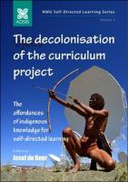Explore

The decolonisation of the curriculum project
Roxanne Bailey, Susan Bester, Josef de Beer (editor), Washington T. Dudu, Aubrey Golightly, Marietjie Havenga, Divan Jagals, Dorothy Laubscher, Lesley Le Grange, Marry Mdakane, Elsa Mentz, Jako Olivier, Neal Petersen, Erika Potgieter, Tswakae Sebotsa, Melissa Speight Vaughn, Marthie van der Walt, Christo van der Westhuizen, Ben-Erik van Wyk, Lounell White
2019
1 Ungluer has
Faved this Work
Login to Fave
This book is the result of a longitudinal research project (2016–2018) funded by the National Research Foundation and the Fuchs Foundation, and it disseminates original research. The project researched the affordances of indigenous knowledge in the school science, technology and mathematics curricula. Short learning programmes (SLPs) were offered to STEM teachers, during which they engaged in creative and inquiry-based teaching and learning strategies. Research shows that strategies such as problem-based and cooperative learning have the potential to enhance self-directed learning. This design-based research was conducted in several provinces in South Africa (North-West Province, the Northern Cape, Limpopo Province, and in Gauteng). Based on the data obtained after each intervention, design principles were formulated for redesigning of SLPs. The qualitative research focussed on teachers’ lived experiences of the epistemological border-crossing between natural science and indigenous knowledge, their views on the nature of science and indigenous knowledge, and the reformed teaching and learning that took place after the intervention, in teachers’ classrooms.
This book is included in DOAB.
Why read this book? Have your say.
You must be logged in to comment.
